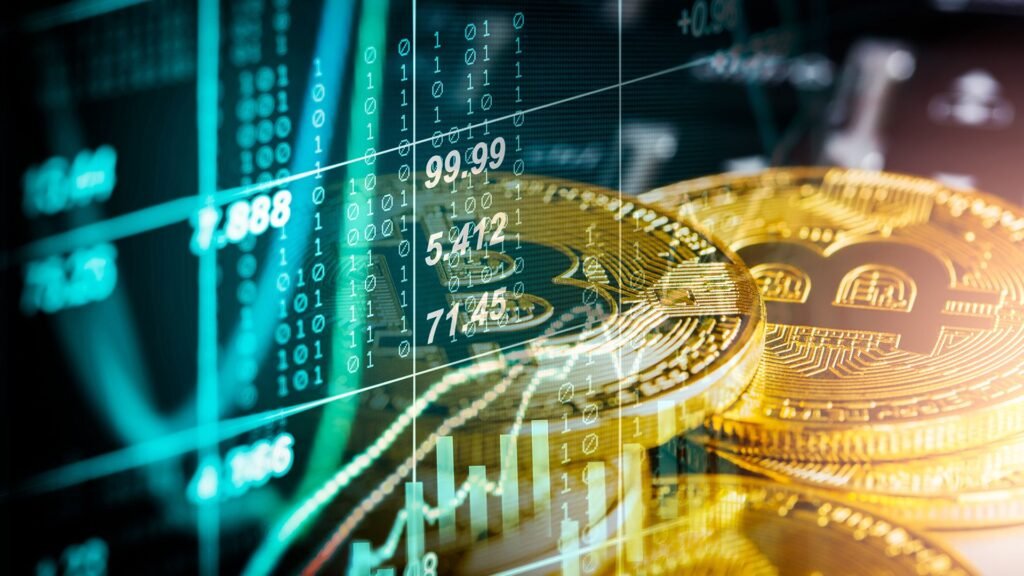Decentralized Finance (DeFi) has unarguably taken a central stage since the inception of blockchain technology. DeFi is so popular that it is the point of entry for many into the new era of the internet. Using smart contracts, they give anyone direct access to finance by utilizing a decentralized and public ledger. They are attracting a new generation of users and have revolutionized the finance sector, removing all middlemen including traditional banks and brokers.
As sound as the concept of DeFi is, it is fundamentally flawed in certain aspects. This is because the concept sometimes doesn’t have an actual real-life use case that can solve real problems in our society. While it is true that DeFi pulled millions out of poverty and provided income options for many, the majority of the world’s population is yet to experience the interesting features of the technology.
This article explores the founding essence of RealFi, why only DeFi is not enough, and how RealFi can truly empower the developing world.
Why RealFi?
Everything started in 2009 when Satoshi Nakamoto launched Bitcoin. During that time, a few people used it for aimless transactions and was gradually getting absorbed into the society. As words about Bitcoin’s existence spread, its usage surged and it started revolutionizing the global payment system. Just a decade later, Bitcoin became a household name throughout the world.
However, Bitcoin faced problems as its adoption grew. It was slow and was subject to iteration. Therefore, as more people used it, the technology behind it lagged. This triggered innovations within the crypto community, leading to the emergence of “Web3’s special project,” Ethereum.
Ethereum emerged as a messiah that solved the fundamental problems with Bitcoin. It was launched to solve the blockchain trilemma but users quickly realised this new solution was costly. As blockchain technology penetrated remote regions all over the world, there was a quick realization that for the technology to truly propel humanity forward, it needed to solve real problems.
Another blockchain project, Cardano, was launched in 2017 to bring blockchain goodwill to the ground, closer to real people who truly need the solution. Cardano implemented a remarkably novel approach though. Any major updates or changes made on the network were rigorously vetted by respectable people in the field. It also focused on the developing world, the cluster of people that are less privileged and most demanding of the innovation blockchain brings.
Cardano initiated the concept of RealFi, which is the intersection between finances and people. Although DeFi on its own is a game-changer, it is faced with real use-case challenges. For instance, access to loans on the DeFi network comes with impracticable conditions for the borrower. In DeFi, users interact peer-to-peer and depend on the inherent immutability and transparency of the blockchain network with no central governing body. Because the users on blockchain-based systems are anonymous, little or nothing is known about the credibility of a borrower and there is insignificant recourse if loans are not repaid.
Because of this, loaning on DeFi systems is usually fully- or over-collateralized. In essence, for you to be able to borrow $1,000, you’ll have to lock either $1,000 or $1,200 in a trust pool. This is impracticable and has no real-life justification.
Interestingly, there is over $100 billion locked in DeFi systems which could bring real impact on developing nations and unlock the real movement of liquidity if we could connect DeFi with real use-cases, a concept that would birth RealFi.
What is RealFi and how does it work?
RealFi is a ground-breaking hybrid financial system that utilizes the best of DeFi and traditional financial systems to offer higher accessibility, enhanced liquidity, and lower costs to individuals and businesses. The traditional financial system, also known as TradFi, relies on credit unions and banks to provide financial services but can be slow and non-flexible. RealFi fuses the strengths of TradFi and DeFi to bring financial security to people, especially those living in developing economies.
RealFi = TradFi + DeFi
RealFi aims to bring these two worlds together to create a system that reflects their best feature. To do this, RealFi integrates decentralized systems into established financial institutions enabling users to have access to fast, secure, and low-cost services while maintaining the security inherent in traditional banking.
How RealFi Can Transform Africa
With RealFi, we can build digital identities for millions of Africans to ascertain their credit score using a protocol that mimics traditional finance but in a decentralised fashion. This will increase the access of individuals and businesses to loans, improving the overall economic standpoint of the African nation.
The reason loans are over-collateralized on DeFi is because the users are anonymous and the smart contracts cannot distinguish a good person from a scam. Inherently, over-collateralizing loans are a safe haven for Defi projects but are useless for real-life utility.
To access a loan in TradFi, banks check lots of data on the person, including bank statements and prior lending compliance, to assess the credit score and risk profile. This indicates that confirmation of identity is available, what we need is a technology that can tie data to the identity. Once that is achieved, the data can be sent to a local bank or a decentralized pool of capital provided by the crypto community.
Atala PRISM ID is a digital identity platform built on the Cardano ecosystem that can tie data to identity to allow a RealFi use case. On Atala PRISM ID, necessary financial information can be stored and sent in a verifiable manner to build a RealFi solution that can structure loans, hedge currency risks, and offer scalability to millions of users. This means Africans can have access to capital from across the world without friction, bridging the geographical gap to liquidity.
Advantages and disadvantages of RealFi
Individuals and businesses can benefit from RealFi in the following ways:
1) Enhanced liquidity: With RealFi, people and businesses can now have access to a large pool of funds from traditional and decentralized sources.
2) Improved security: There is an additional layer of security in RealFi because it utilizes the best practices in DeFi and TradFi.
3) Lower costs: By leveraging DeFi, RealFi has precluded many middlemen and reduced transaction fees, removing the barrier of entry to financial services.
4) Greater accessibility: RealFi has opened new markets and achieved inclusivity because it allows people to access financial services without geographical or institutional barriers.
Despite the numerous benefits, certain bottlenecks need to be addressed for RealFi to be able to attain its full potential:
1) Interoperability: For RealFi to be truly successful, we must build better technology that ensures seamless integration and interoperability between RealFi and TradFi.
2) Education and awareness: Businesses and individuals must be properly educated about the impact of RealFi to drive more adoption.
3) Privacy: Ensuring data privacy and protection of users’ funds may be a huge task for RealFi systems because they contain an element of traditional finance.
4) Regulatory clarity: Because RealFi waltzes between traditional finance and decentralized finance, there is a complex regulatory environment.
Conclusion
RealFi means real adoption and people in developing economies would enjoy the benefits of the technology mostly. There are over 1.4 billion people who are still unbanked in the world, they can be included in the global financial system through RealFi. Through RealFi, the world will become smaller and better connected with everyone having equal opportunity to thrive in the global economic landscape.






